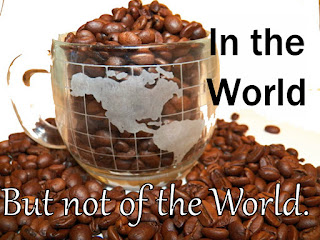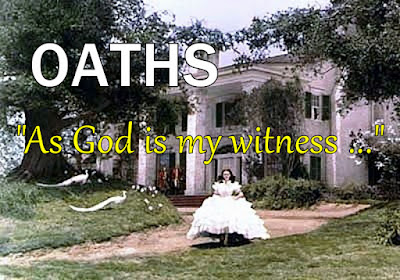PECKING OURSELVES TO DEATH
Salt is good; but if salt loses its saltiness, how will it become salty again? Maintain salt among yourselves and keep peace with each other.”
Mark 9:50 (CEB)
What is the source of conflict among you? What is the source of your disputes? Don’t they come from your cravings that are at war in your own lives? ... Brothers and sisters, don’t say evil things about each other. Whoever insults or criticizes a brother or sister insults and criticizes the Law. If you find fault with the Law, you are not a doer of the Law but a judge over it. There is only one lawgiver and judge, and he is able to save and to destroy. But you who judge your neighbor, who are you?
James 4:1, 11-12 (CEB)

Interested in group selection and productivity, Dr. William D. Muir, a professor of animal science at Purdue University, devised an experiment using a flock of chickens to see what made chickens more productive. With chickens, it's relatively easy to measure productivity -- just count the eggs.
He divided the flock into two groups. The first group, made up of your ordinary average chickens, was left alone for six generations to do what chickens do -- lay eggs and produce more chickens.
Out of the second group, Dr. Muir selected the most productive chickens, the ones who laid the most eggs, to form a "super flock." Of course, this would result in a flock of super chickens, easily out producing the average chickens.
But what did Dr. Muir discover? After six generations, the super flock hadn't fared very well and showed a marked decrease in production. Only three super chickens survived. They had pecked all the others to death. Competing with each other, members of the super flock had only survived and continued to produce eggs by lethally suppressing the rest of the group.
The average chickens, possibly because they had a healthier social structure, were doing very well. They were great looking -- plump and fully feathered. Their egg production had increased 68%.
Sometimes, I think we in the Body of Christ, the Church, are in danger of pecking ourselves to death.
Over the years, I've seen a lot of conflict in the church. People have argues, sometimes splitting the church on issues such as what color the carpet should be in the sanctuary, should there be drywall or panel in the Fellowship Hall, or what should be done with memorial gifts that no longer serve the ministry of the church. Some of the conflicts seemed petty and judgemental, like the group in the church who is against the after school program, because the wrong (poor, unchurched, racially different) kids were coming or another group who were angry that the pastor bought a new car.
Today, in a culture of divisiveness, the arguments are louder, often resulting in personal attacks and wounded hearts, especially with hot button issues like gay marriage.
And the world is watching how we handle these conflicts. We may believe the world is ignoring us, but look what happens if a church or religious figure gets in trouble. The news goes global.
I believe the way we handle conflict within the church is one of our greatest witnesses we have to the world today.
James is right, the source of unloving, relationship damaging, church splitting conflict comes from our self-centered, ego-driven desires that are in opposition to the transformational work of grace within us:
- The tendency to reject and exclude other with differing ideas and opinions.
- The need to always be right, to have the last word, to win every argument at any cost.
- Being judgemental, making ourselves like God in determining who is of value or has worth.
- A general lack of love, respect and acceptance of each other's differences.
In transitional times and in times of reformation, such as we are experiencing now, such behavior comes too easily as we react in anger and fear to a rapidly changing cultural landscape. It is during these times that our saltiness, the love of Christ within us and the effectiveness of our witness, is being sorely tested.
And the world is watching us, watching to see if we are truly salty, that we live out Christ's love in our words and deeds. Do we love God, each other, our neighbors, the stranger, our enemies, and the enemies of God, and as John Wesley said, "even the unthankful and unholy ones?" (Sermon #39, "The Catholic Spirit)?
The only experience some people have with God and Christ is how we well we live out the gospel in our personal lives and in relationship with others, So, do they see the church as a community where there is love, acceptance and respect? Are people in the church encouraged, edified and supported, praying for one another? Do people see strength in our differences and a courage to agree to disagree? If not, they may come to the conclusion Christianity is based on lies and hypocrisy.
In the United Methodist Church, we have some wonderful guides to live our lives by, like "do good; do no harm; stay in love with God.: The concept that is coming to the forefront these days for me is what John Wesley called the "Catholic Spirit" (universal, shared by all, spirit).
In essentials, unity. In non-essentials, liberty. In all things, charity. (St. Augustine)
Focus on the main thing, Jesus Christ. Where we differ, give ourselves the freedom to disagree and discover new insights in the beliefs and opinions of others. And, no matter what, love others just like Christ loves us.
The powers of this world would like nothing better than the church to become so distracted and divided by local and hot-button issues that we are no longer effective witnesses for Christ, that we lose our saltiness. The body of Christ cannot be the body of Christ if its members are at war with each other, splitting off and scattering its members.
The world wins, we become like tasteless seasoning, and where is Christ in all of this?
Ephesians 5:21tells us, "Submit to one another out of reverence for Christ." That is, to put ourselves under the care of one another, watching over each in love."
More important is to submit ourselves to God and give up those behaviors that are stumbling blocks to the full expression of Christ's love and unity in the community of faith. Through grace, God offers the power to change our hearts, transform our minds and draw us closer together in Christ with one another.
Let's not peck each other to death over issues and problems or to be destroyed by our differences. Let's keep our focus on the main thing, Jesus Christ, that we may bear in our lives and our relationships with each other the fruit of love and peace and offer ourselves as a living witness to the world.
The powers of this world would like nothing better than the church to become so distracted and divided by local and hot-button issues that we are no longer effective witnesses for Christ, that we lose our saltiness. The body of Christ cannot be the body of Christ if its members are at war with each other, splitting off and scattering its members.
The world wins, we become like tasteless seasoning, and where is Christ in all of this?
Ephesians 5:21tells us, "Submit to one another out of reverence for Christ." That is, to put ourselves under the care of one another, watching over each in love."
More important is to submit ourselves to God and give up those behaviors that are stumbling blocks to the full expression of Christ's love and unity in the community of faith. Through grace, God offers the power to change our hearts, transform our minds and draw us closer together in Christ with one another.
Let's not peck each other to death over issues and problems or to be destroyed by our differences. Let's keep our focus on the main thing, Jesus Christ, that we may bear in our lives and our relationships with each other the fruit of love and peace and offer ourselves as a living witness to the world.



Comments
Post a Comment